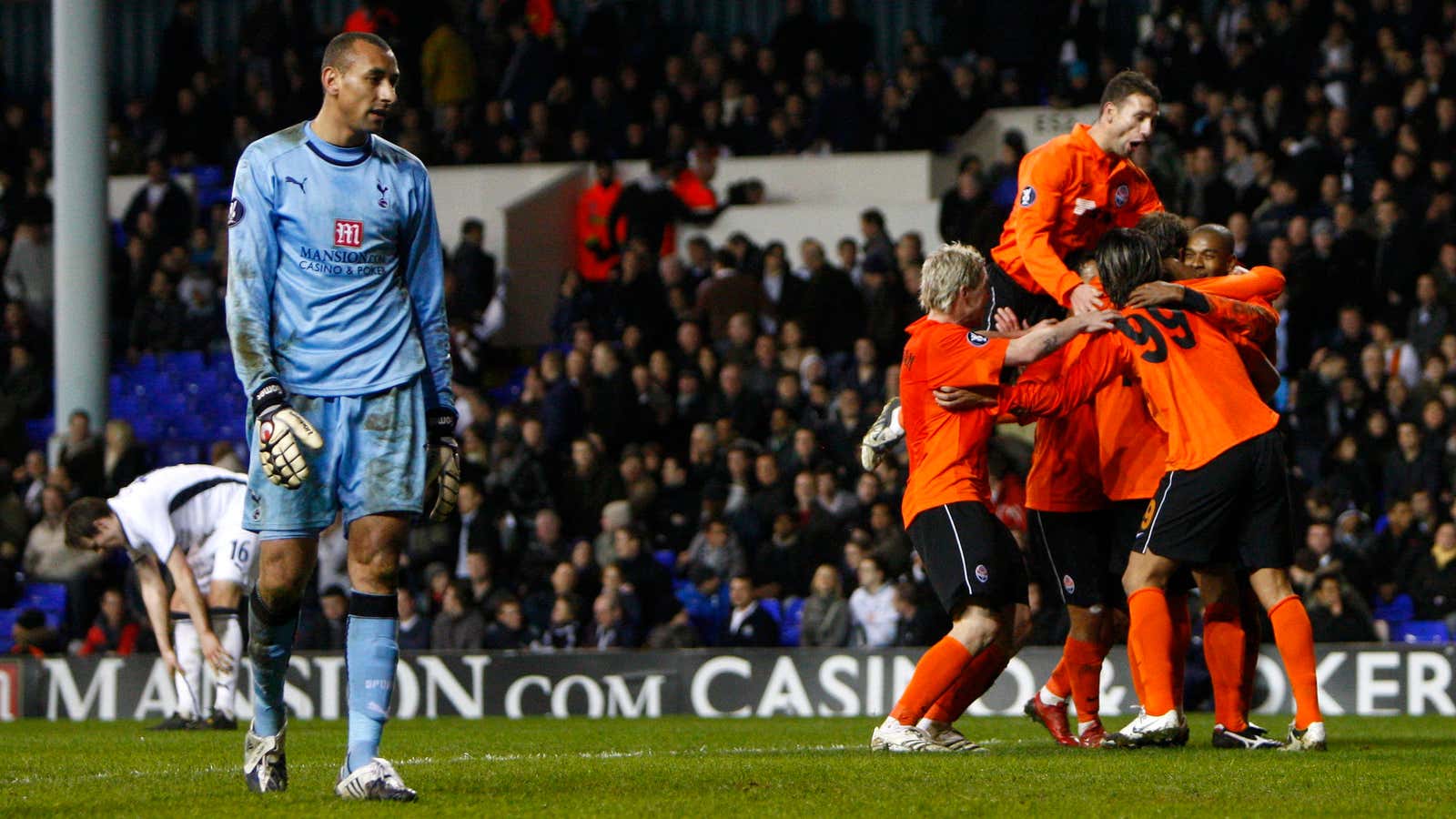This post has been updated.
Reports suggest that UEFA, European soccer’s governing body, has approved the creation of a new league for Crimea, which was annexed by Russia in March 2014.
The new eight-team Crimean league—in a special UEFA-recognized zone that is considered neither Russian nor Ukrainian—will start in August. Part of the deal includes the teams won’t play in the lucrative and important European competitions for at least two years.
But what will that mean for nine-times champion Shakhtar Donetsk, whose city is not in Crimea but is currently under the control of pro-Russian militants? This season, it has been playing some of Europe’s biggest teams away from its home, in Lviv, which is firmly in Ukraine.
The Crimean war and annexation has led to sanctions against Russia and also calls to strip Russia of the right to host the 2018 World Cup. But it is only the latest political headache for UEFA and the world body, FIFA.
Qatar, which is hosting the 2022 edition, is constantly under scrutiny for its harsh treatment of migrant labor and recently arrested a BBC crew filming on the issues. And this coming week, FIFA is set to vote on a Palestinian motion to have Israel suspended from the world soccer body.
The new Crimean league will be the latest quirky solution to melding hundreds of years of geopolitics with the world’s favorite game—examples that include letting the Basque and Catalonian “national” teams play occasionally, the Vatican’s all-amateur team, Kosovo holding its first-ever game as a soccer nation with no flags and national anthems, and the 78,000-person principality of Andorra having multiple teams and leagues that all share just two stadiums.
This post has been updated to make clear that Donetsk is not in Crimea and part of a separate-but-related conflict between Russia and Ukraine.
